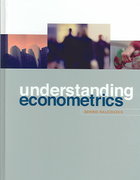Question
Consider the following insurance problem. Ben has income if employed, and income if unemployed. He can buy 0 units of unemployment insurance at price ,
Consider the following insurance problem. Ben has income if employed, and income if unemployed. He can buy 0 units of unemployment insurance at price , i.e. units of insurance costs ., and the insurance company will pay him in the event of unemployment. The probability of unemployment is , where 0< <1. Ben has log utility of income ()=.
(i) Derive a formula for Ben's expected utility, as a function of , and the parameters of the problem ,, and . (3 marks)
(ii) Using your answer in (i), find the first and second derivatives of Ben's expected utility with respect to . (3 marks)
(iii) Using your answer in (ii), find the value of , called , that maximises Ben's expected utility (you may ignore the constraint 0 ). (3 marks)
(iv) Find a condition for to be strictly positive. Comment on what you find. (3 marks)
(v) Assume that there are a large number of individuals identical to Ben. If insurance companies are perfectly competitive and there are no administrative costs of supplying insurance, what will be the equilibrium price and quantity sold of insurance? Explain your reasoning. (4 marks)
Step by Step Solution
There are 3 Steps involved in it
Step: 1

Get Instant Access to Expert-Tailored Solutions
See step-by-step solutions with expert insights and AI powered tools for academic success
Step: 2

Step: 3

Ace Your Homework with AI
Get the answers you need in no time with our AI-driven, step-by-step assistance
Get Started


